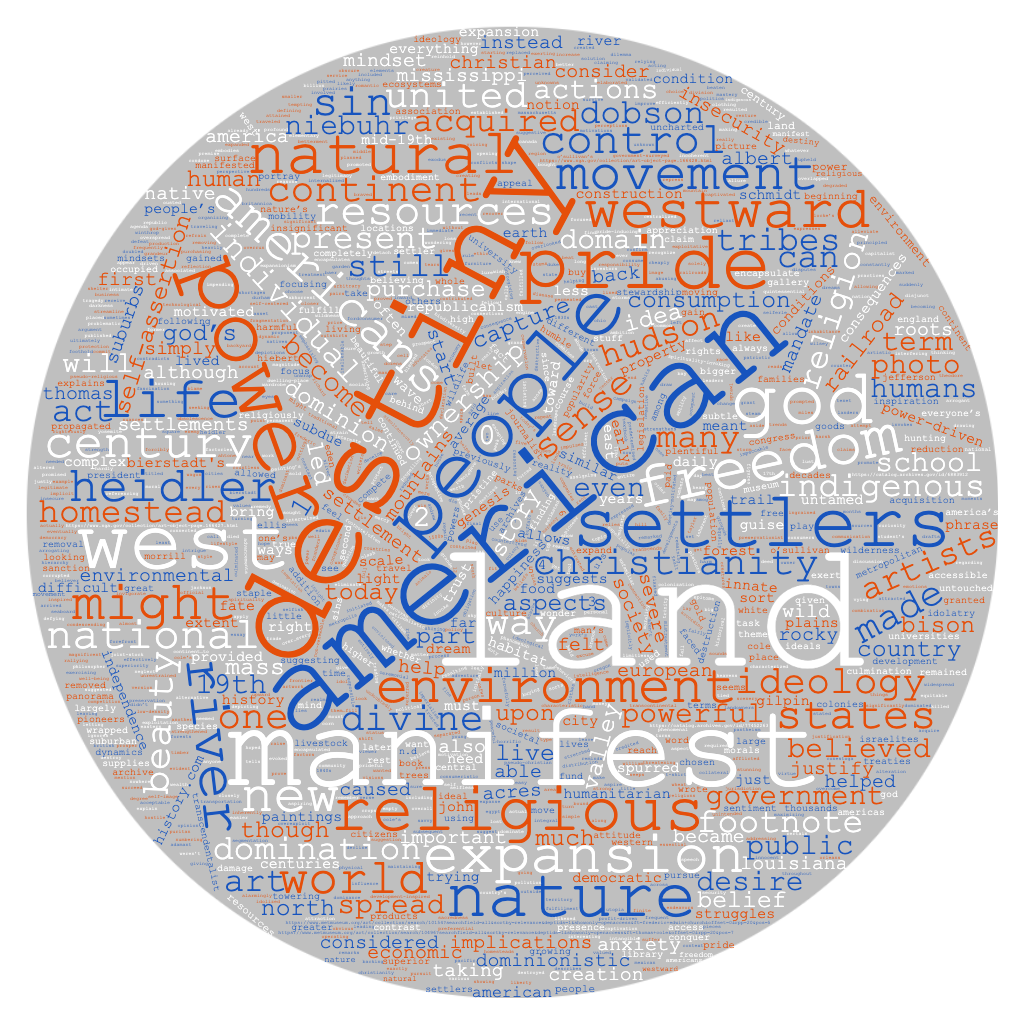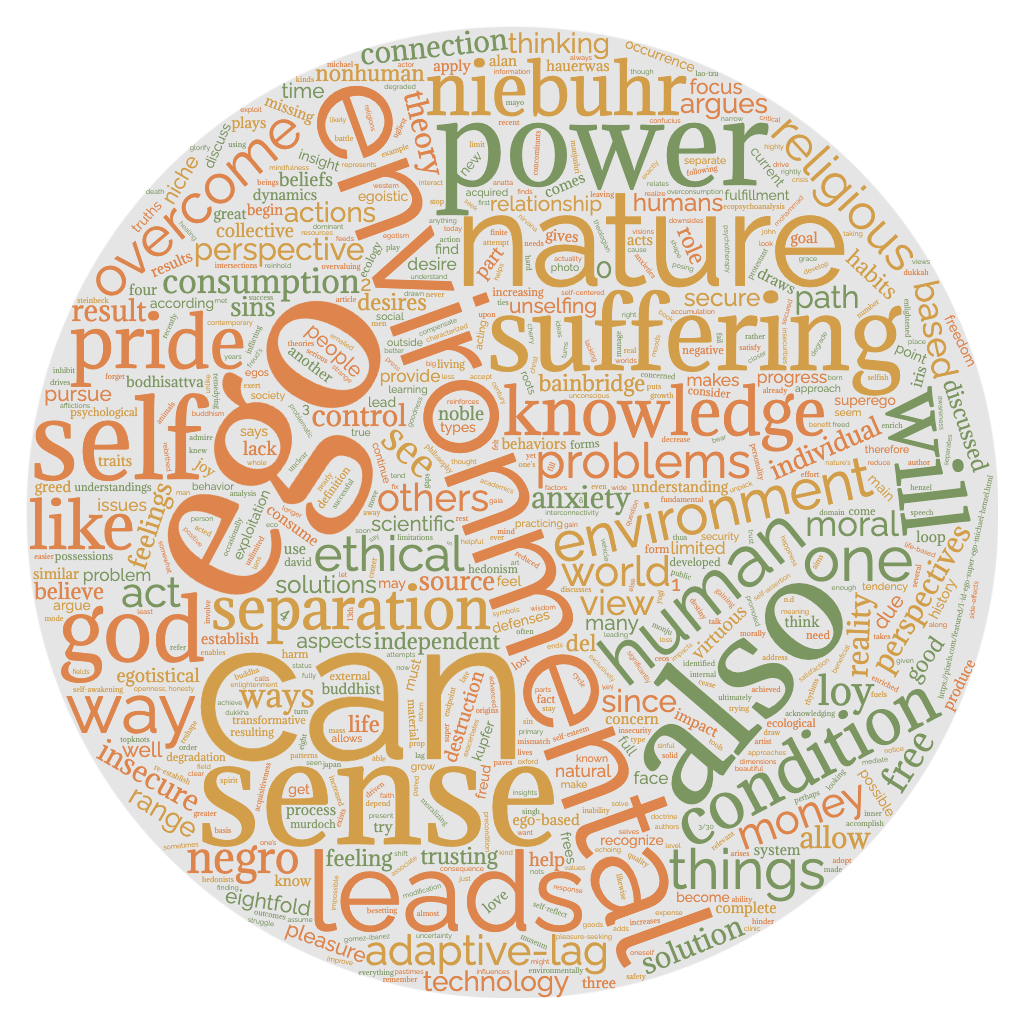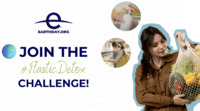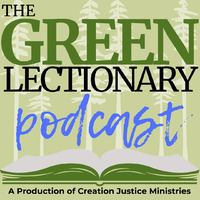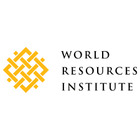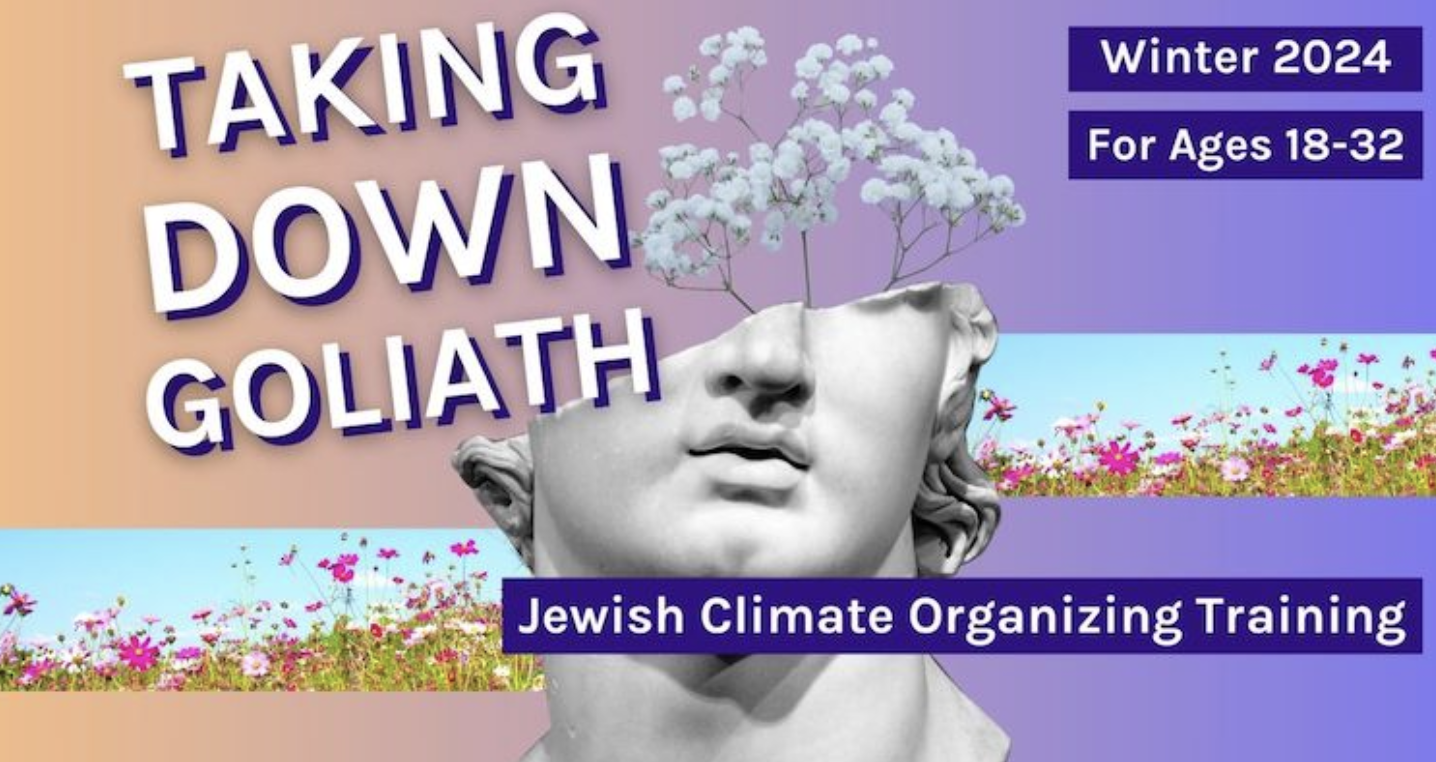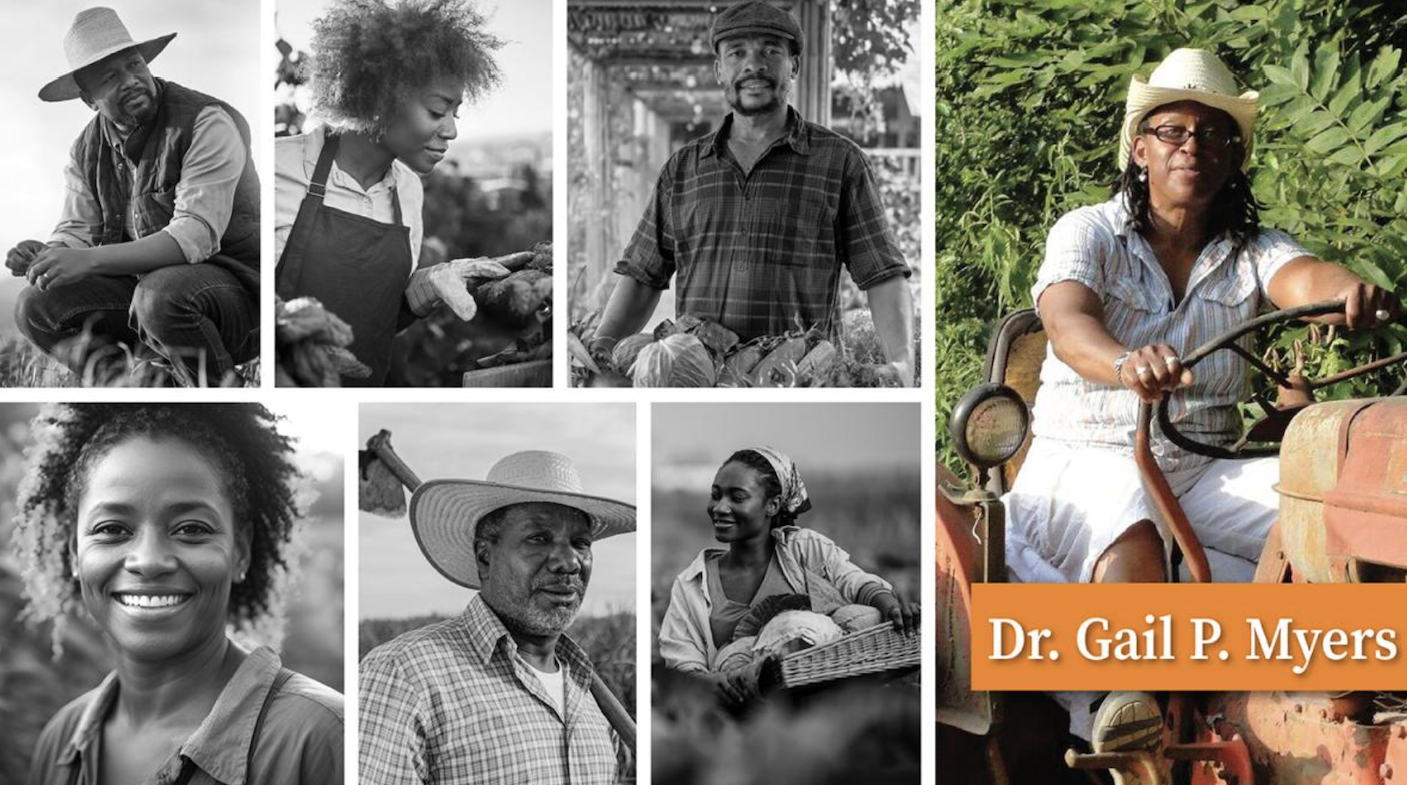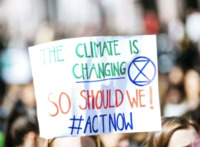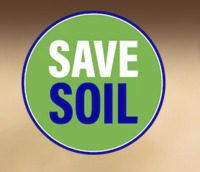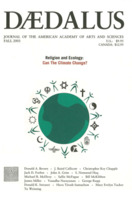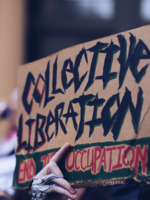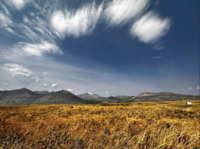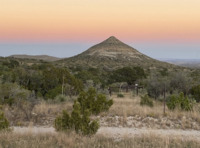Search
155 items
-
A Movement Is Born: Environmental Justice and the UCC
After the ban of PCBs in the late 1970s, a landfill in Warren County, North Carolina had been designated as a place of disposal. This county had one of the highest rates of black residents, as well as poverty rates. This sparked leaders in the United Church of Christ including Dollie Burwell, Rev. Leon White, Rev. Benjamin Chavis Jr. and the UCC’s Commission for Racial Justice to become a leading force in the environmental justice movement. This article highlights the work of these leaders in fighting against environmental racism. -
Manifest Destiny: The American Dream or an Ecological Crisis?
This chapter from the student-written book "Emerging Perspectives on Religion and Environmental Values in America" explores the history of colonial expansion and the concept of manifest destiny in the US. It examines the environmental impacts as well as the religious motivations behind this course of action. Below is the first paragraph of the chapter to introduce the discussion.
"A quintessential part of the “American dream” is freedom. Whether it be freedom of religion, freedom of speech, or simply freedom to pursue one’s own dreams, Americans have always idolized the United States as a sort of utopia for individual freedom. 'Manifest destiny' is a mindset that embodies this belief. A staple term in every elementary, middle, and high school student’s American history textbook, it might be considered the epitome of what it meant to be American at the start of American imperialism. The idea of manifest destiny gained popularity in the mid-19th century and was built upon the notion of freedom. Advocates for manifest destiny believed that Americans were free, even bound by fate, to conquer the North American continent and expand the realm of democratic republicanism and Christianity. Under the guise of religious, political, and economic motivations, manifest destiny allowed Americans to pursue the 'American dream' and subdue the 'wild west.' The environmental and humanitarian implications of manifest destiny were frequently overlooked or not considered, resulting in ideology that still today seeps into our behaviors and perceptions regarding domination and superiority." -
Indigenous Environmental Network
"Established in 1990 within the United States, IEN was formed by grassroots Indigenous peoples and individuals to address environmental and economic justice issues (EJ). IEN’s activities include building the capacity of Indigenous communities and tribal governments to develop mechanisms to protect our sacred sites, land, water, air, natural resources, health of both our people and all living things, and to build economically sustainable communities.IEN accomplishes this by maintaining an informational clearinghouse, organizing campaigns, direct actions and public awareness, building the capacity of community and tribes to address EJ issues, development of initiatives to impact policy, and building alliances among Indigenous communities, tribes, inter-tribal and Indigenous organizations, people-of-color/ethnic organizations, faith-based and women groups, youth, labor, environmental organizations and others. IEN convenes local, regional and national meetings on environmental and economic justice issues, and provides support, resources and referral to Indigenous communities and youth throughout primarily North America – and in recent years – globally." -
Fund for Front Line Power
"Frontline communities — those impacted first, worst, and for centuries by environmental injustice and sytemic racism — have long-recognized that the climate crisis is here.
As we witness the escalating impacts of compounding crises and the innovations of interconnected solutions, we must accelerate the flow of liberated self-determination capital, land stewardship, and resources to the grassroots.
We cannot solve the climate crisis with incremental actions, market-based schemes, or techno-fixes that perpetuate harm. We must root our future in economies and communities grounded in equity, justice, and well-being. Frontline communities have developed bold and practical solutions that do just that!" -
The Consequences of the Ego and the Potential of Unselfing
This chapter from the student-written book “Emerging Perspectives on Religion and Environmental Values in America” explores consumption, human ego, and the relationship between these and our environment. It discusses human nature and how we interact with each other, technology, and nature. Below is the first paragraph of the chapter to introduce the discussion.
"Consumption is one of the favorite pastimes of our developed society, but it is also the source of many environmental problems. As technology has advanced, our society and economy have developed into one dependent on the mass consumption of things. Our habits of mass consumption have acted as a vehicle of destruction by increasing the amount of resources we use and waste we produce, leaving parts of our environment severely degraded. As a result, the people who have more and seem to be successful make more environmental impact, while the environmental consequences of their actions tend to be felt by the have nots. Our symbols of success that we prop up seem to be part of the problem as they have serious environmental downsides, and even though we recognize these downsides we continue to glorify consumptive habits that are destructive. But have you ever considered the roots of our need to consume?" -
2023 Feast of St. Francis: The Way of Francis: Seeking Peace & Justice for All Creation
"This year’s program is designed to assist you, your family, parish, school, diocese, religious community, or other Catholic institution learn about Catholic nonviolence, and the "Franciscan" call to seek peace and justice for all of creation. The need to answer this call has become more and more urgent, as our planet, and our most vulnerable brothers and sisters, are living the consequences of climate change and its associated economic and social disruptions. The 90-minute program enables U.S. Catholics to host in-person or virtual sessions to grow in their understanding and call to care for creation as integral to the Catholic faith through prayer, education and action." -
#PlasticDetox Social Media Challenge
"Join the EARTHDAY.ORG #PlasticDetox challenge and reduce your plastic use! Take small steps to avoid single-use plastics like bags, straws, bottles, and packaging. Share your eco-friendly swaps and inspire others to join the movement on social media using #PlasticDetox.
The challenge not only focuses on individual actions but also encourages participants to spread awareness and inspire others to join the movement. By collectively engaging in the EARTHDAY.ORG #PlasticDetox challenge, participants will create a ripple effect and encourage a wider shift towards a plastic-free lifestyle. Together, we can make a big impact for a plastic-free future!" -
Season of Creation 2023: Let Justice and Peace Flow
"Prophet Isaiah proclaims: 'Listen carefully, I am about to do a new thing, now it will spring forth; will you not be aware of it? I will even put a road in the wilderness, rivers in the desert.' (Isaiah 43: 19) Biodiversity is being lost at a rate not seen since the last mass extinction. The futures of young people are threatened by the cascading impacts of the loss of biodiversity and a changing climate.
The urgency grows and we must make visible peace with Earth and on Earth, at the same time that justice calls us to repentance and a change of attitude and actions. As we join the river of justice and peace with others then hope is created instead of despair.
We invite you to use these resources and share them with your church, pastor or other regional authority to join the Season of Creation, and even spread the word to local media." -
The Green Lectionary podcast
"Over the weeks of the Season of Creation we will be launching the Green Lectionary podcast, a conversation on scripture through the lens of creation justice. We have invited scholars, activists and preachers to join the CJM staff in discussing how we might preach well known passages with an eye towards caring for all that God has made." -
Faith and the Environmental Movement: A Franciscan Perspective
This blog post was written by a member of WE ACT, which is an environmental justice-based organization located in Harlem, NYC. The post discusses the relationship between Catholicism and environmentalism. The author argues that Catholics are key environmental changemakers because Catholic teachings and religious leaders, like Pope Francis, emphasize protection for God's creation and care for the poor. -
Environmental underpinnings in Rosh Hashanah Liturgy: We are stewards of our world…take better care of the earth!
David Golinkin explains in this article the connection between the Jewish holiday, Rosh Hashanah, and environmentalism. He explains certain Jewish phrases and their significance in respect to our responsibility to the world. -
World Resources Institute
Founded in 1982 by Gus Speth in Washington, D.C., World Resources Institute (WRI) has staff around the world using research- and evidence-based approaches in an effort to mobilize partnerships for the protection and restoration of the environment. They aim to help create resilient and sustainable communities, with a focus on the production and usage of food and energy, as well as the planning and building of cities. "WRI’s mission is to move human society to live in ways that protect Earth’s environment and its capacity to provide for the needs and aspirations of current and future generations. Our mission and values guide all the work we do." (WRI Mission and Values) -
Pohoda Music Festival
"Pohoda is a music and arts festival with an international acclaim, where alternative, indie, electronica, world music, & punk meet classical; alongside literature, dance, visual art, film, and theatre." First organized in 1997, this festival takes place in Slovakia each summer. It is renowned for its social and ecological consciousness and promotion of community and sustainability. Pohoda received the Green Operations Award in 2017. Multi-cultural and environmentally friendly, Pohoda has set high operation standards for its festival counterparts. -
Taking Down Goliath
"It can be daunting to confront the climate crisis and move toward effective action – but there’s so much we can do together. Dayenu has developed a Jewish climate organizing training especially for young people, and it has empowered and motivated hundreds of us already.
Join us in the new year for Taking Down Goliath, Dayenu’s signature program for people ages 18-32.
This four-part virtual training takes place during two consecutive weeks on Monday and Wednesday evenings. The dates for Winter 2024 are January 29, January 31, February 5, and February 7. Participants should plan to attend all four sessions.
During the first week, we’ll focus on themes of POWER and JUSTICE. In our second week together, we’ll talk about building RELATIONSHIPS and taking ACTION.
More than 350 young people have already engaged in Taking Down Goliath. This is your chance!
All participants who complete the course will be offered a $50 stipend.
Dayenu is committed to racial equity and accessibility. Sephardi and Mizrahi Jews, Black and Indigenous people, people of color, people with disabilities, and LGBTQIA people are strongly encouraged to register.
The early bird registration deadline is Friday, January 19, 2024!" -
EPN Breakfast: Recognition of historical injustices in agriculture and the importance of environmental experiences for racial healing
"This program, on the 8th annual National Day of Racial Healing, addresses land access and explores the human connection to the environment through farming, gardening and other active outdoor activities and the ability for agricultural experiences and acknowledgement of historical injustices to serve as healing towards racial equity. The National Day of Racial Healing, part of the W.K. Kellogg Foundation’s Truth, Racial, Healing & Transformation efforts, is a time to contemplate our shared values and create the blueprint together for #HowWeHeal from the effects of racism. Launched on Jan. 17, 2017, National Day of Racial Healing is an opportunity to bring ALL people together in their common humanity and inspire collective action to create a more just and equitable world."
1/16/2024, 7:15-9:30 a.m.
Nationwide and Ohio Farm Bureau 4H Center
Columbus, OH
$25 for non-students, $5 for students, free for virtual participants -
God's Creation Needs You Video Series
"'God’s Creation Needs You' is a new video series featuring six Catholic communities across the nation caring for our common home through climate action, advocacy, farming, community organizing, service to others, solar energy, education, prayer and a focus on environmental justice.
Watch for a new video each week!"
This page contains a compilation of the videos involved in this series, as well as a preview to the series. -
Climate Justice Resource Page
This web page from the West Ohio Conference of the United Methodist Church contains information about climate change, as well as a variety of related resources. These include how people can advocate for the issue, reflect on their actions, connect with related organizations, and find a number of other resources. -
The Clan of One-Breasted Women
In this excerpt, Terry Tempest Williams reflects on her family's long-running history of developing cancer that traces from nuclear testing in Nevada. Williams emphasizes her experience of coming to terms with deviating from Mormon norms if it means advocating for the U.S. government to take responsibility for liabilities regarding human health. Williams decides blind obediance will not get her anywhere, and she needs to start asking questions. -
Save Soil
This resource details a campaign to improve soil practices to be more sustainable through building up consciousness. The leader of this movement is Sadhguru, a spiritual leader. Sadhguru advocates for connecting inner spiritual processes to an affinity for nature. This is an international organization that started in Tamil Nadu, India. -
Self Portrait
"This 35mm film photo is a self portrait taken on Rachel Carson Way in Ithaca, NY. To me, sustainability is taking small actions every day to better the people and the planet. This photo is representative of many sustainable actions I take in my day to day life, including shopping second hand, buying from small businesses, supporting local artists, supporting women in science, and traveling ethically."
Taken by Lydia Derrico. Submitted to the RESTORExchange Sustainability Contest. -
Envisioning the Daoist Body in the Economy of Cosmic Power
"From a sociological perspective, religious traditions represent and construct the collective values and systems of meaning of human societies. As such, religious traditions influence the way their adherents interpret their experience of the world and, consequently, influence their actions upon it. Religious ideologies, however, are themselves always in medias res. Even though their adherents may uphold an eternal vision of archaic principles handed down from the gods, in actuality this vision is continuously renegotiated and reconstructed in conversation with the changing demands of historical and cultural context." -
Collective Liberation
"An activist protesting the violence in Gaza holds a sign calling for collective liberation for all . What speaks sustainability about this to me is how something is being reused , for a greater cause , in the cardboard , which instead of being thrown away is being used to uplift . The Palestinian cause is one of not only liberation of a peoples but liberation of the land. Palestinian culture is rooted in sustainabile agriculture practices , and sustainability within familia systems ." Taken by Paul Hill. Submitted to the RESTORExchange Sustainability Photo Contest. -
Moving Goal
"Sustainability is a moving goal; requiring humans to be agile and intuitive to achieve sustainability and build resiliency." Taken by Kenedy Witherow. Submitted to the RESTORExchange Sustainability Contest. -
Preserving a Beautiful World
"Preserving a beautiful world". Taken by David Farrokh. Submitted to the RESTORExchange Sustainability Photo Contest. -
Reflections of Our Impact on the Built Environment
"Reflections of our impact on the built environment: This photo of a main canal in Amsterdam, Netherlands held deeper correlation to the meaning of sustainability to me since it demonstrates how the state of the natural environment is a reflection of the built environment and what measures we take to mitigate climate change and environmental degradation. Sustainability to me is deeply related to the intersection of the built environment and nature and how we can create an evolving world while maintaining the earth for future generations." Taken by Mikayla Carey. Submitted to the RESTORExchange Sustainability Contest.


